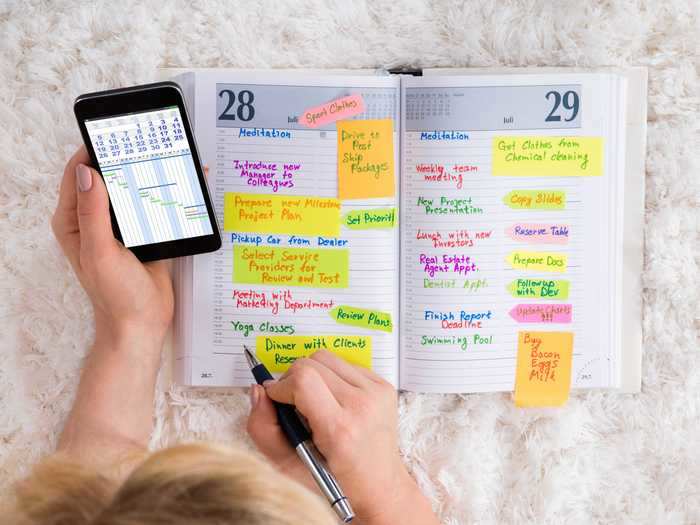The author, working from home during the pandemic.Kate Macchi/Business Insider
- Starting a new internship during the novel coronavirus pandemic can be overwhelming.
- I've been working since mid-March as an intern at Insider — and I've been doing it remotely.
- This has helped me pick up several essential lessons for succeeding in a virtual office, including the importance of thorough note-taking and why video check-ins with my managers and other interns are so crucial.
- Here are 8 tips I have for any interns about to embark on a similar journey.
- Visit Business Insider's homepage for more stories.
When the novel coronavirus was deemed a pandemic in mid-March, I was halfway to New York from South Carolina to start an internship on the social media team at Insider Inc., the parent company of Business Insider. Suddenly, the concern I felt over first-day jitters and settling into my new team was superseded by questions like "How long will this crisis last?" and "Will I ever make it into the office?"
My first weeks on the job as a fellow (the title used by paid interns on a six-month program at Insider) consisted of navigating the onboarding process in a completely remote setting and doing meet-and-greets with colleagues I would possibly never get the chance to know in person. However, despite the unprecedented nature in which I started my internship, I quickly found my footing and was able to turn an otherwise jarring situation into a learning opportunity.
In the two months I've been working remotely, I've become what I consider to be an expert in operating within a work-from-home environment.
Here are eight tips I have for any other interns about to embark on a similar journey, and how they can use them to succeed at their new roles while navigating the virtual office.
Read the original article on
Business Insider
8. Don't forget to have fun with it!
svetikd/Getty Images
Although it'll be difficult to show people who you are while you're working from home, you should try to let your personality shine through whenever possible.
This can be as simple as throwing a joke into the mix in workplace communications or just saying "Thank you" to coworkers that have really made a difference in your acclimation to the company. In my case, I had the opportunity to take over the intern Instagram channel for the day, which was a fun and casual way to give some insight into who I am as a person, not just as a professional.
7. Make sure to take regular breaks
Shutterstock/Syda Productions
This may seem like an obvious point, but it can be surprisingly easy to go all day without getting up from your home office space, especially if you're living alone. You should approach the workday as if it were an eight-hour car ride: Get up and stretch your legs every two hours or so to keep your body moving.
If you're living with family or roommates, maybe make a plan to walk or stretch at certain times together every day so that you'll be more committed to staying active. I've recently picked up running, and since I'm staying with my mother during lockdown, having her as my running partner has kept me motivated to stick to the new workout regimen.
Studies show that people who stay active tend to be happier, so the sooner you jump on the bandwagon, the sooner you'll see an improvement in your day-to-day mood and efficiency.
6. Schedule weekly check-ins
Andrey Popov/Shutterstock
As a new hire, it's likely that your manager has already scheduled a weekly check-in with you. If not, set it up yourself. When the check-in rolls around, always have questions and topics to touch on that you've accumulated throughout the week. Even if you don't need any clarification on something, make a list of the assignments you're tackling to give a sort of progress update. This includes things you feel you could improve upon.
For instance, I recently told my own manager that I knew I needed to spend time on two menial daily tasks that I had been assigned the previous week, but that I had neglected while working on bigger projects. I was relieved to find that she similarly struggles to keep on top of small-ticket items that sometimes pale in comparison to the larger tasks at hand.
She offered up some great tips on time management (e.g., set a calendar alert reminding you to tackle those odds and ends by a certain time each day), and I felt better overall about having brought it up. By broaching the topic yourself, it shows your supervisor that you're actively learning and are aware of ways you could stand to boost your productivity.
If anything, though, don't leave the meeting only to realize you had a laundry list of points you forgot to mention, as it can be inconvenient for both you and your manager to bring it up outside the allotted check-in time.
5. Keep an eye on your mental health
Shutterstock
Now more than ever, it's important that you monitor your emotional well-being.
It can be far too easy to let tasks pile up to the point of being overwhelmed. To avoid this, implement a time-management system that gives you breathing room to be productive without being overextended.
When the end of the day rolls around, make an effort to really disconnect from work. If this means silencing notifications on your email, do it. It doesn't always reflect well if you can't separate your work life from your private life.
If you feel like that's not enough, I'd also recommend picking up journaling. I only started journaling myself about two years ago, but it's greatly increased my productivity and capacity to think clearly. Studies show that the kind of reflection that is necessary to journal leads to a "boost in self-efficacy," and reduced levels of anxiety, so it may be just the thing to keep you on track as you attempt to navigate this uncertain time.
4. Show initiative whenever possible
Something that will really set you apart is whether you provide support when it's needed, even if it goes beyond your job requirements. For instance, if another intern/coworker is out for the day, offer to help with their work. By stepping up without needing to be asked, you display the characteristics of a leader and show yourself to be a key team player.
It also shows that you're willing to take the initiative necessary to make yourself known.
3. Get to know your coworkers
Luis Alvarez/Getty Images
When starting your new position, it's just as important to connect with entry-level employees as it is to network with management.
Keep in touch with other interns, even if they're not on your team. You'll be able to pick their brains on matters such as office hierarchy and navigating roadblocks that they've possibly already overcome.
Within the first couple of weeks in my new position, I had scheduled a video call with a fellow intern on my team who had been in the role exponentially longer than me. She was a wealth of information when it came to figuring out the office dynamics and gave me some idea of what to expect in the months to come as far as duties and assignments go.
Also, odds are that it's just as baffling for other interns as it is for you to be working from home. Lean on your peers — it will invariably provide some emotional comfort during this confusing time.
2. Take thorough notes
GaudiLab/Shutterstock
Never before has it been so important to take notes detailing the ins and outs of your job. Going through the onboarding process in person can be tedious in itself, but the added distance that comes from working remotely makes it even more difficult. From day one, you should be recording everything that you do so that the margin of error later on will be much smaller. It would be nice if, when confronted with a question, you could just pop your head into someone's cubicle, but that's not actually an option during lockdown.
While your managers will, of course, encourage you to ask questions (and you should!), being able to operate autonomously will reflect well on you, and having notes to touch back on will expedite the team's success overall.
Something I've been doing from the start is keeping a spiral-bound notebook and pen at my desk at all times. Since I learn better from taking handwritten notes to look back on (and it's believed that taking notes by hand is the most effective way of learning), it just gives me the space I need to get all my thoughts and to-dos down on paper.
However, that's not to say that's the best method for you. You may prefer to use the sticky note function on your laptop or keep a running document open for all your notes. Try out a few different systems until you find one that fits.
1. Make an effort to build your professional network
damircudic/Getty Images
It can seem a bit odd to try to foster relationships with your superiors when it has to be done through a computer screen, but it really is an important aspect of becoming a valued member of the team. Before the pandemic, you may have connected with ease by running into someone in the break room. What that translates to while working from home is scheduling a "virtual coffee."
It could be just 10 minutes or it could be an hour. Either way, it'll give you an opportunity to get to know one another as you would if you were in the office. Take the time to ask questions — both personal and professional — so that you develop a sort of repartee that will serve as a great ice breaker and make you a real person in their eyes.
A personal goal I've set for myself is to spend some time getting acquainted with every manager on my team in an unofficial capacity. This has meant scheduling one-on-one "get to know you" sessions where topics could range anywhere from "So how did you start in your current position?" to "I see you've got some 'Star Wars' decor in your apartment. Are you a fan?"
Breaking through that personal barrier makes working from home that much easier since you eventually start to see your colleagues in a friendly capacity rather than a strictly professional one. It also gives you a little insight into how those in management-level positions got to where they are today, which can help direct your own career path.








